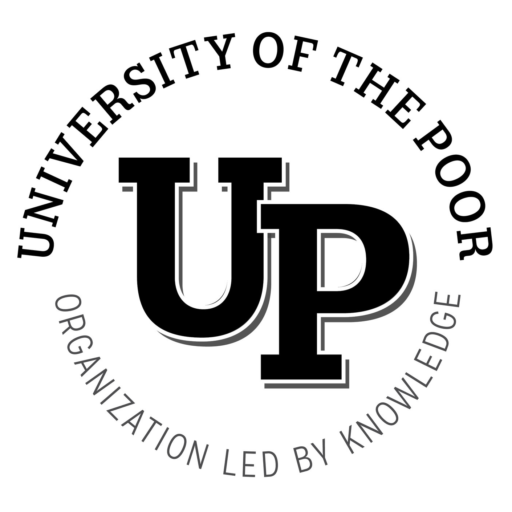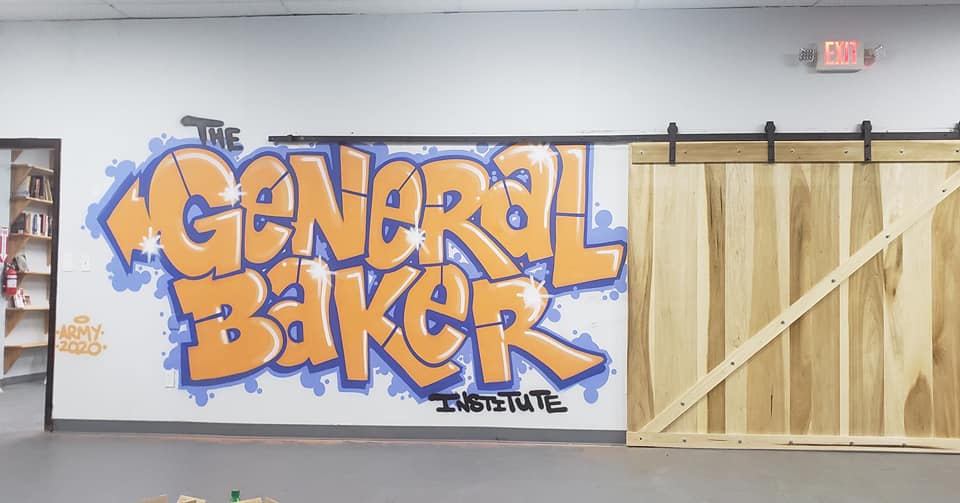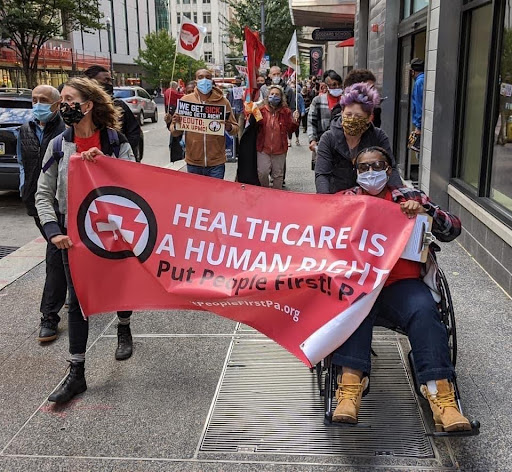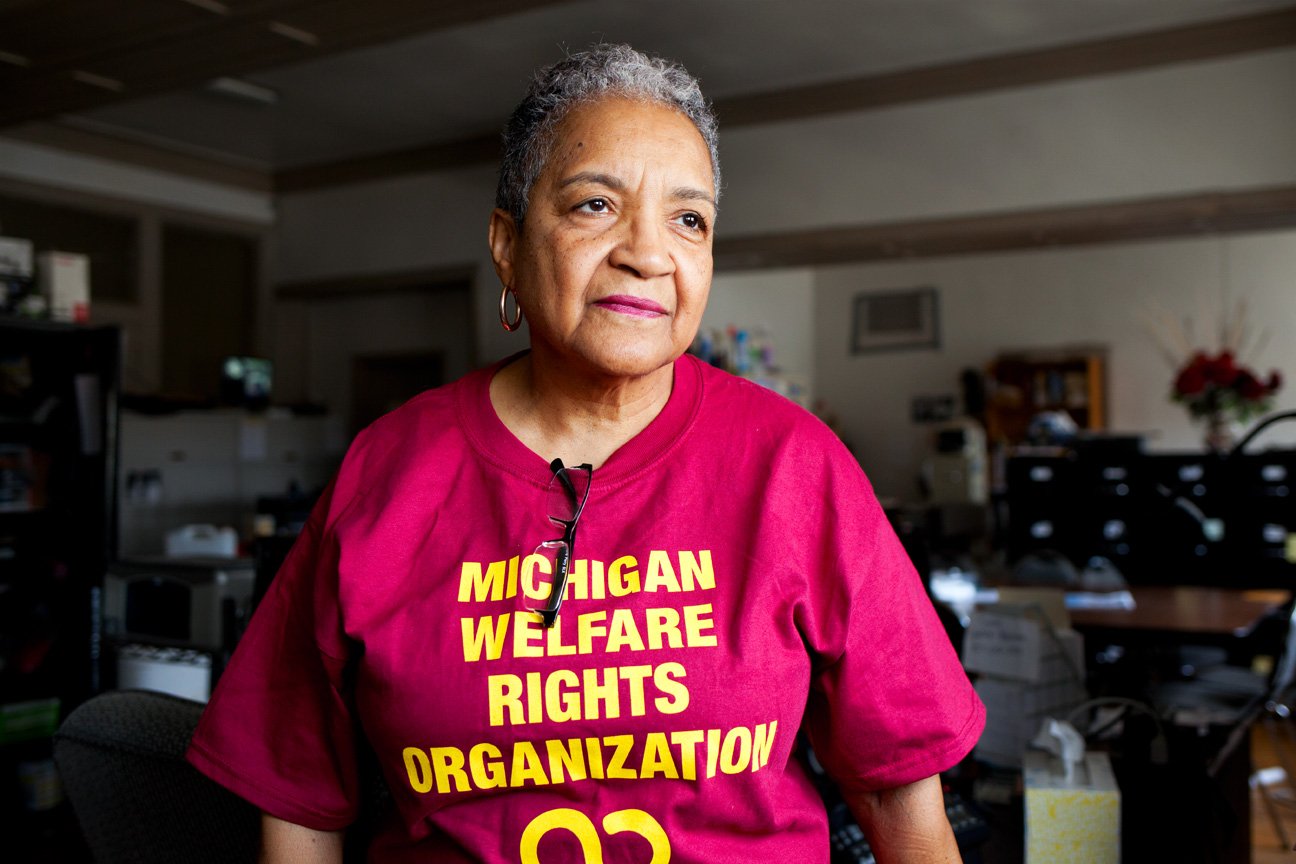General Gordon Baker (1941-2014) was a leading organizer, intellectual, and revolutionary who was a comrade and mentor to many in the University of the Poor network. Committed to making “thinkers out of fighters and fighters out of thinkers,” General Baker grounded his nearly six decades of political work in the synthesis of study and struggle.
Born and raised in Detroit, General Baker developed from a young civil rights activist and Black nationalist to a revolutionary. He was a founding member of Dodge Revolutionary Union Movement and the League of Revolutionary Black Workers, as well as the Communist Labor Party and the League of Revolutionaries for a New America. In the late 80s and 90s, General Baker was a leading voice in interpreting the impact of automation on the working class and recognizing the need to organize the growing ranks of the poor, a project he committed himself to for the remaining years of his life. [For more on General Baker’s life and impact, see part 1 and part 2 of “General Gordon Baker: Evolution of a Revolutionary” in Rally! Comrades.]
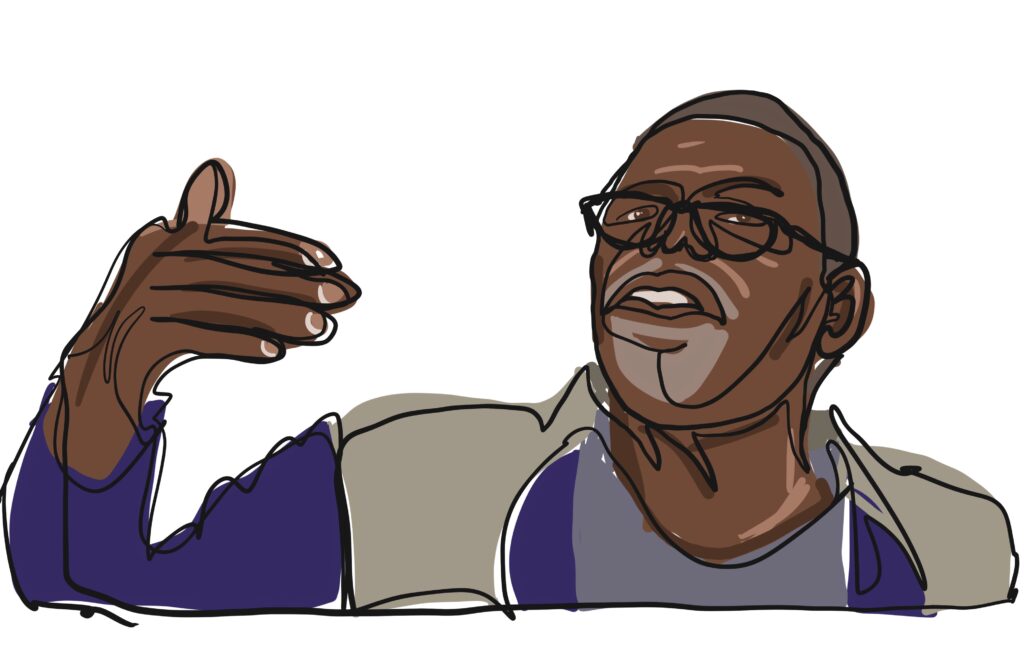
Today, his legacy is being carried forward through the work of the General Baker Institute in Detroit, which had its public launch on Labor Day 2021. GBI is a movement incubator in Detroit that provides educational courses and activities related to General Baker’s life and legacy, as well as contemporary issues and social movements. West McNeill and Kevin Kang from the University of the Poor Journal spoke with Carolyn Baker, General Baker’s daughter and a member of GBI, about the vision for the Institute and how it is applying General Baker’s commitment to make the struggle a school.
West McNeill: How are the conditions of Detroit now and over the past couple years shaping your activities and mission at GBI?
Carolyn Baker: We’ve been trying to really focus on education, meeting people where they are, and trying to go through some kind of educational process with them. That’s very difficult, because you have to set aside your strong beliefs and not get offended by someone else’s. The only way to move someone is to actually listen to what they’re putting out and try to figure out where they’re getting their information from.
Before any other programs, we started out with education and also worked on oral histories, trying to get out this history of the League of Revolutionary Black Workers. When COVID hit, and then the uprisings hit (in the wake of the murder of George Floyd), we had just started our first educational series. We were able to position ourselves in the city by offering education to the marches, as we tried to figure out how to deal with the spontaneity that was taking place and who were some of the leaders that might emerge from these uprisings. We got together with some other groups and decided to do educationals outside different spaces. We were able to create a space and opportunity on Mondays for folks to be intentional about reflections and analysis. We called those Liberation Mondays, and they were held either outside of General Baker Institute or other similar places. That’s how we were able to connect with other younger people. We were able to do a Liberation Festival for a whole week, which included education every day for the neighborhood and folks who wanted to come, and which included workshops with other cultural activities.
That kind of gave us an idea about the General Baker Institute, of a place that was different and that you don’t see in the city. A place – I don’t want to say for the left – but where folks can come and organize. And I don’t say a place for the left, because we have something for everyone here. People who you would never see at a class will just want to hang out.
What we see here in Detroit is capitalism trying every little trick that they think might work. They just try it out here – the bankruptcy, the emergency manager, the taking of the water versus making it public. And we have all these different authorities now in the city. They’re just trying out all these different tactics. Detroit is like this test ground for capitalism. And that’s always been the case. You saw that with Henry Ford, how he never had a factory in the city of Detroit. He had it in Highland Park, so that he could control the water. And then he moved to Dearborn and he was able to control everything and make his own police force.
Now, we see how they’re eliminating bus lines. We don’t have a mass transit system here in the Motor City. But they develop these little fake train lines here and there, when they’re not even called for by the people. People aren’t calling for trains. They might be calling for more routes on the bus line and a better bus system. But now Detroit is eliminating major bus lines, when people who live in the city don’t necessarily work here because there aren’t any jobs left.
GBI is also looked at as a place where you have intergenerational conversation. You have these older revolutionaries who come and have conversations with these young people who just are here hanging out, and genuine conversation is sparked. There’s been clear understanding of things that come out of these natural conversations, just because people are hanging out in this space. We here at the Institute are trying to mainly focus on the neighborhood around us, and not necessarily on activists. We know the activists will always come, but the folks that we want to try to be intentional about are the folks in the neighborhood. So we had an opening for the neighborhood as well, before we had a grand opening. That was very positive.
WM: You mentioned meeting people where they’re at and the challenge of that. Could you say a little bit about where you’re finding people are at, and how that differs between the activists and the folks who you’re meeting in the neighborhood?
CB: What we say to folks when they come in this building is that we all have ruling class tendencies. There are things we hold on that we don’t even realize and we defend them. When you come through this building, you’re probably going to hear some shit that you don’t agree with, but you have to realize that this is about people holding on to ruling class values that have been embedded in them, and they haven’t gotten to a point where they realize that it’s not their own ideas. So we lead with that until we’ve had conversations on nationalism, on gender, etc. There have been some harsh conversations. And we listen. We listen to them. That’s the hard part, to sit and listen to some things that are just like, “Oh, my God,” and not try to debate someone who was just expressing themselves. Because you will never get to why it is that they think that way if you can’t listen. So this is all about long process of listening.
We also tell folks who come that we don’t ever have to agree on everything. Matter of fact, we don’t have to agree on 80 percent. But if we can agree on the fact that we’re losing, we’re getting our asses kicked, then we’re good. If I can get you to agree that we’re losing, then we can try to figure out some other stuff eventually. And that’s where we start with people. Out of that we’ve seen Black nationalists here gearing up to do a demonstration with people who are not Black and people who are different sexual orientations. Folks who say, out loud in this space, “I’ve never done an action with people who aren’t Black”, but I know it happened because they were all in this place together. They just bump ideas off each other. We look at those victories as very small compared to what we’ve got to do, but where else would that have happened? It wouldn’t happen out on the street.
Kevin Kang: One final question for you, Carolyn. What does “struggle as a school” mean for you all at GBI, and how are you using that definition to shape your activities?
CB: Just that. Meeting folks where they are. I mean, if you don’t think that’s a struggle, more power to you. I think that’s the main place where we are right now. It’s still early on. But what helps us is to be a place where people feel like they can come and have a conversation. They can come study and read some stuff and then actually have fun, too.
We try to promote this concept of the “struggle as a school.” We have four pillars: internationalism, projects of survival, arts and culture, and political education. Those are our core programs. And what we think our position is right now is to try to push propaganda through all those pillars. On the front of our building we’re trying to do a wall of resistance. It’s just images, no words. We have the picture of my dad being carried by six police officers. It’s eight feet by four feet. We have an image of a bunch of workers from the wildcat strike (in the 1960s), and it says “Black worker power”. And then we have a picture of a bunch of women standing in a door frame, which is a picture from the National Welfare Rights Organization back in the 60s, when they took over the Health Education and Welfare Department federal building. These are three images that are huge on the front of our building, visible to folks as they pass by.
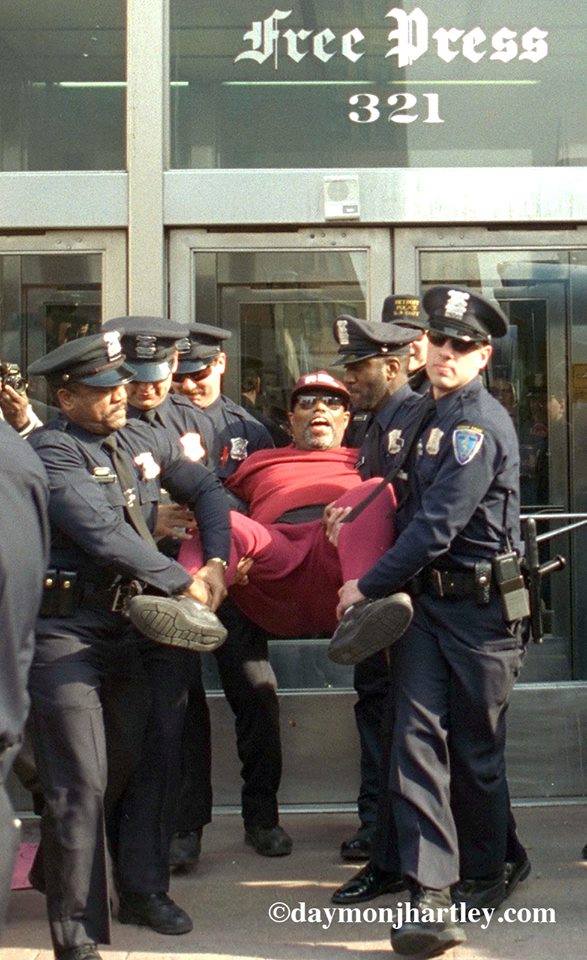
That’s propaganda, just trying to educate people in all these different ways so that we can get them in the door to be able to have conversations and we can meet them where they are. And that’s a difficult, difficult task to do. Because people want to defend what they have learned and what they think is correct, and not really listen to folks in a way that will help them understand what position they are coming from. Just listening is meaningful. For us, making the struggle into a school is about trying to get at what the things are that are stopping us from uniting. What are those thoughts and values that we defend from the ruling class?
And like I said, we’re babies. We’re new to this and we haven’t figured all our shit out. My dad used to tell me all the time, “don’t let anyone tell you that we do”. And we don’t. We’re just going through every day trying to figure it out.
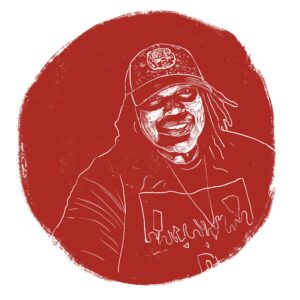
Carolyn Baker is the daughter of General Baker and an organizer/educator at the General Baker Institute.
